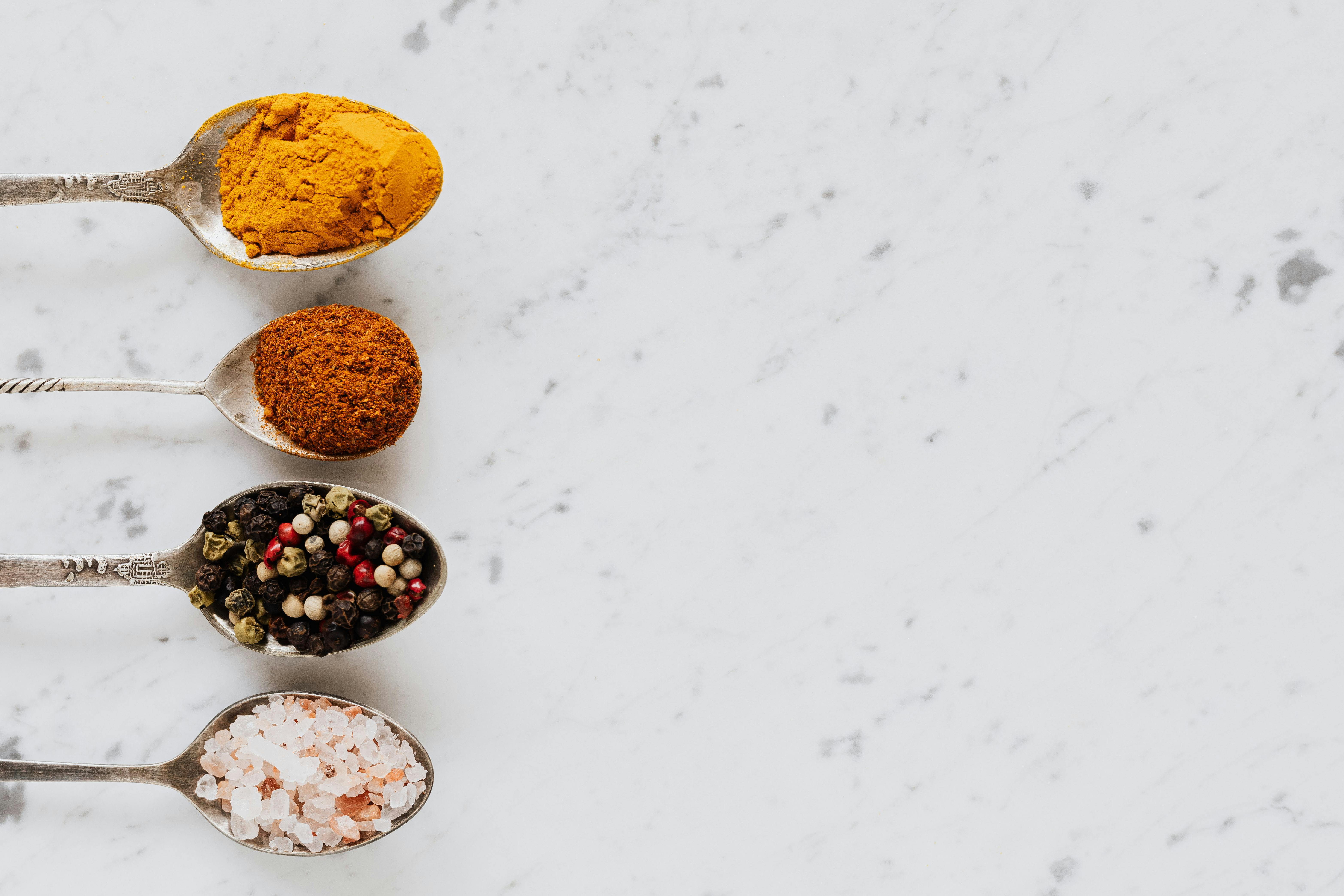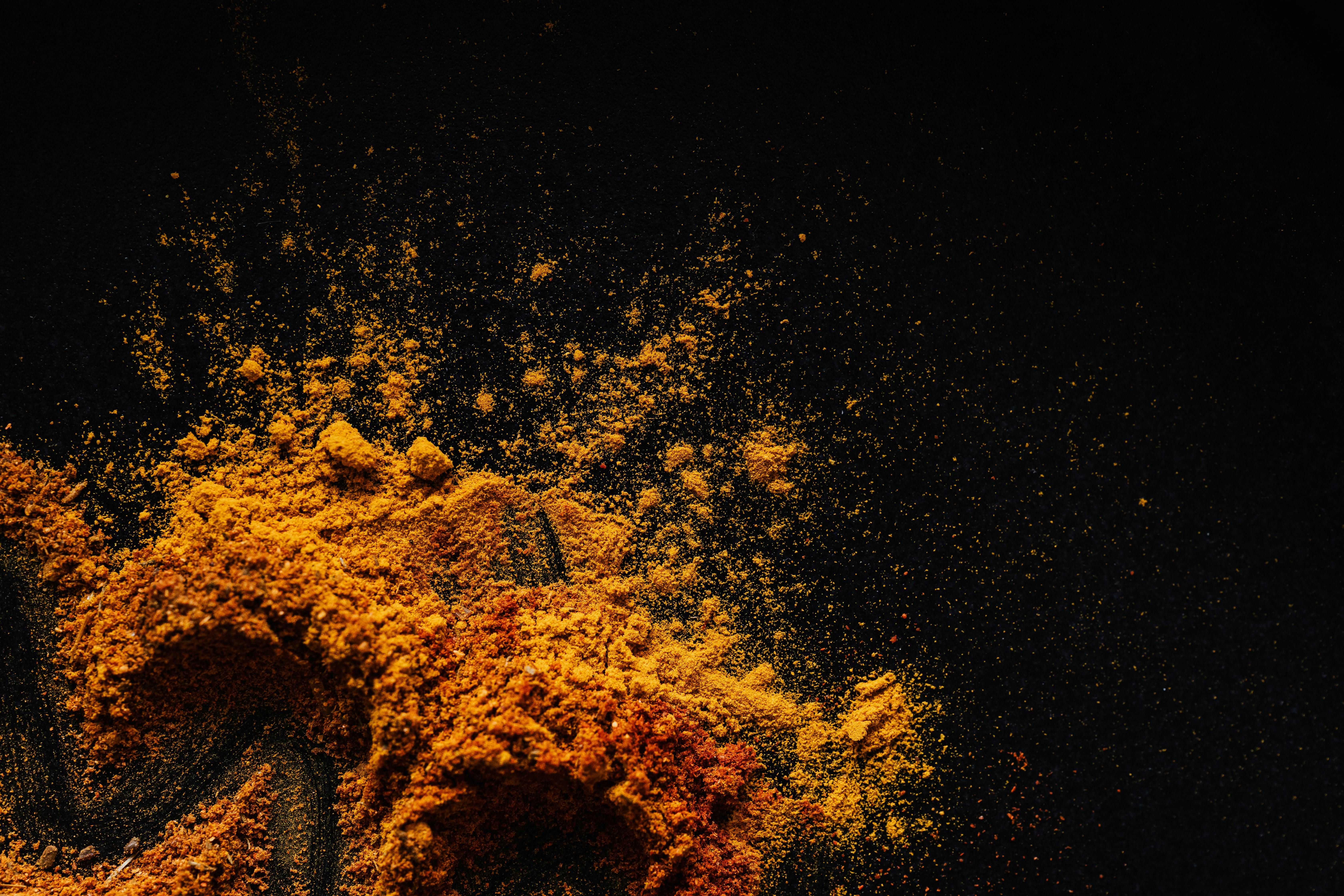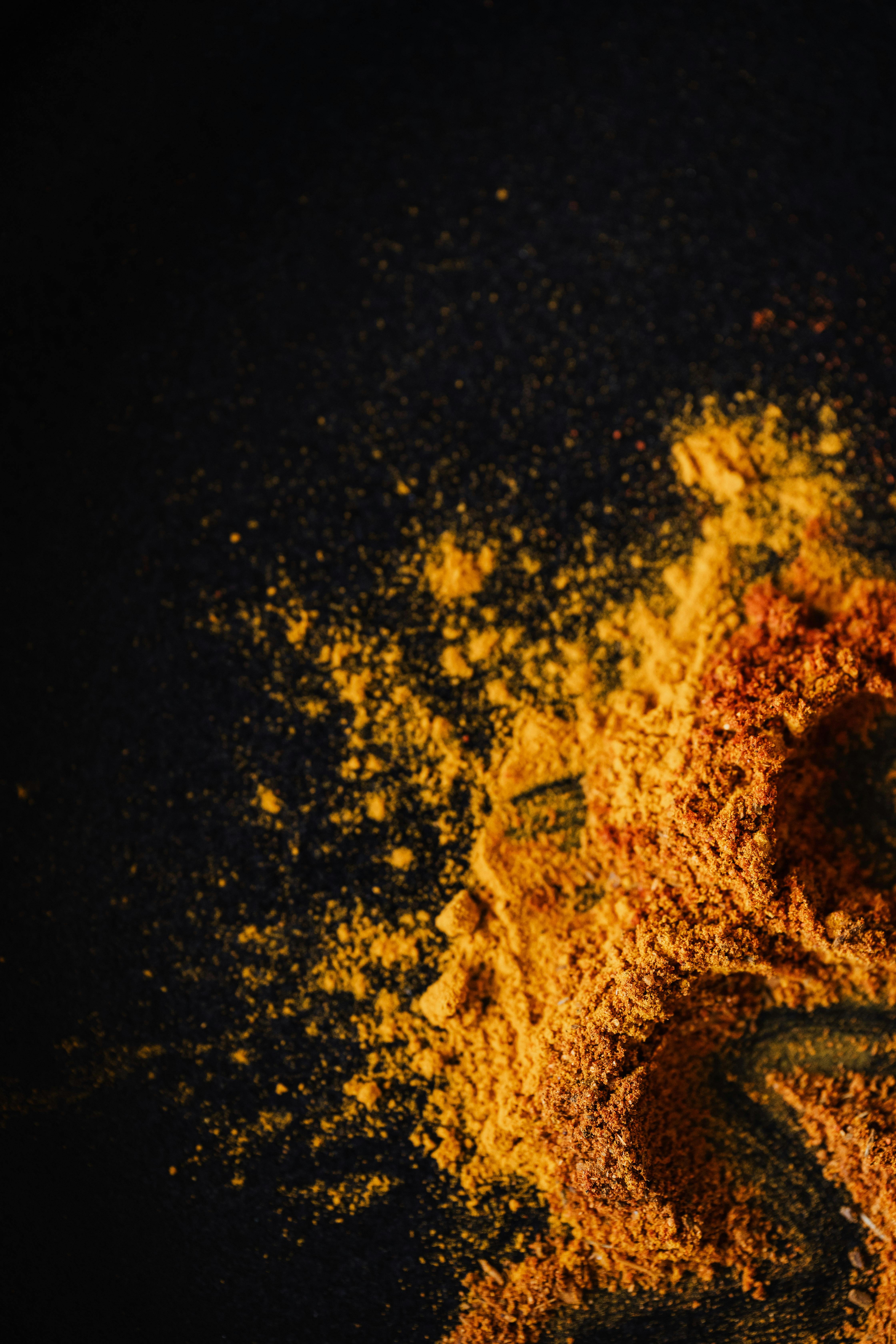I’ve always been on the lookout for natural remedies to improve my skincare routine, and recently I stumbled upon something truly magical: turmeric. This brightly colored spice not only adds a kick to my cooking, but it also has amazing anti-inflammatory properties that can work wonders for my skin. From reducing redness and soothing irritation to brightening dull complexions, turmeric seems to be the secret ingredient I’ve been missing all this time. So, if you’re looking to level up your skincare game, it’s time to embrace the power of turmeric and let its anti-inflammatory magic work its wonders.
What is Turmeric?
Turmeric, also known by its scientific name Curcuma longa, is a bright yellow-orange spice that is commonly used in cooking, particularly in South Asian cuisine. It is derived from the roots of the Curcuma longa plant, which is part of the ginger family. Turmeric has been used for centuries in traditional medicine practices and is well-known for its vibrant color and distinctive flavor.
Origin and History of Turmeric
Turmeric has a rich history that dates back thousands of years. It is believed to have originated in the Indian subcontinent, where it has been used in Ayurvedic medicine and culinary traditions for over 4,000 years. The use of turmeric spread to other parts of Asia, Africa, and the Middle East over time.
In addition to its medicinal and culinary uses, turmeric has played a significant role in cultural and religious ceremonies in countries like India. It has been used as a dye for fabric and has even been used as a natural remedy for various ailments.
Composition of Turmeric
The vibrant color of turmeric can be attributed to a compound called curcuminoids, with curcumin being the most prominent. Curcumin is responsible for many of the health benefits associated with turmeric. Besides curcumin, turmeric also contains volatile oils, vitamins, minerals, and other bioactive compounds that contribute to its therapeutic properties.
Benefits of Turmeric for Skin
Turmeric is not only a popular spice in the kitchen but also a powerful ingredient in skincare. Its numerous benefits for the skin have gained attention in the beauty industry. Incorporating turmeric into your skincare routine can help improve the overall health and appearance of your skin.
The Anti-Inflammatory Power of Turmeric
One of the key properties of turmeric is its potent anti-inflammatory effect. Inflammation is a natural response by the body to injury or infection, but chronic inflammation can contribute to various skin conditions, including acne, psoriasis, and eczema. By reducing inflammation, turmeric can promote healthier skin and alleviate certain skin conditions.
How Turmeric Reduces Inflammation
Turmeric’s anti-inflammatory properties can be attributed to its active compound, curcumin. Curcumin has been shown to inhibit the action of certain enzymes and proteins involved in the inflammatory response. It helps to reduce the production of inflammatory cytokines and mediators, thereby reducing inflammation in the skin.
Research Studies on Turmeric’s Anti-Inflammatory Properties
Numerous studies have been conducted to explore the anti-inflammatory properties of turmeric and curcumin. Research has shown that curcumin can inhibit the expression of inflammatory markers and enzymes, such as COX-2 and TNF-alpha, which play a role in inflammation. These findings suggest that turmeric can be an effective natural remedy for inflammatory skin conditions.
Effectiveness of Turmeric in Treating Skin Conditions
The anti-inflammatory properties of turmeric make it highly beneficial for managing various skin conditions. Studies have shown that turmeric can help reduce redness, swelling, and irritation associated with acne, psoriasis, and eczema. It can also help soothe and calm the skin, promoting a healthier complexion.

This image is property of images.pexels.com.
Incorporating Turmeric into Your Skincare Routine
There are several ways to incorporate turmeric into your skincare routine to enjoy its benefits. Whether you prefer DIY recipes or ready-made products, there are options for everyone’s preferences.
Different Ways to Use Turmeric on Your Skin
One of the simplest ways to use turmeric on your skin is by creating a paste. You can mix turmeric powder with water or a carrier oil, such as coconut oil or olive oil, to form a paste. This paste can be applied directly to the skin or used as an ingredient in various skincare recipes.
DIY Turmeric Face Masks and Scrubs
Turmeric can be combined with other natural ingredients to create homemade face masks and scrubs. These DIY recipes allow you to customize your skincare routine and address specific skin concerns. For example, a turmeric and honey mask can help hydrate and soothe dry skin, while a turmeric and yogurt scrub can exfoliate and brighten dull skin.
Precautions and Tips for Using Turmeric on Your Skin
While turmeric is generally safe to use on the skin, it’s important to take some precautions and follow a few tips to avoid any potential side effects. Firstly, be mindful of the amount of turmeric used, as excessive use can temporarily stain the skin yellow. Secondly, perform a patch test before applying turmeric to your face to check for any allergic reactions. Lastly, consider adding a pinch of black pepper to enhance curcumin absorption and maximize the benefits.
Turmeric-Based Skincare Products
If you prefer ready-made skincare products, there is now a wide range of turmeric-infused cleansers, toners, serums, oils, masks, and creams available in the market.
Turmeric Infused Cleansers and Toners
Turmeric-infused cleansers and toners are designed to cleanse and purify the skin while harnessing the power of turmeric to reduce inflammation and promote a healthy complexion. These products can help remove impurities, excess oil, and makeup, leaving the skin refreshed and rejuvenated.
Turmeric Face Serums and Oils
Turmeric face serums and oils are formulated to provide concentrated benefits to the skin. They are often enriched with antioxidants, vitamins, and other natural ingredients to nourish and hydrate the skin. These products can help reduce the appearance of fine lines and wrinkles, improve skin elasticity, and brighten the complexion.
Turmeric Masks and Creams
Turmeric masks and creams combine the anti-inflammatory properties of turmeric with other beneficial ingredients to target specific skin concerns. From acne-fighting masks to hydrating creams, there is a wide variety of turmeric-based skincare products available to suit different skin types and needs.

This image is property of images.pexels.com.
The Role of Curcumin in Turmeric
Curcumin, the active compound in turmeric, plays a crucial role in the benefits it offers for the skin.
What is Curcumin?
Curcumin is a bioactive compound found in turmeric that gives it its vibrant color and holds significant therapeutic potential. It is known for its antioxidant, anti-inflammatory, and antimicrobial properties, making it a valuable ingredient in skincare.
Curcumin’s Anti-Inflammatory Properties
As mentioned earlier, curcumin’s anti-inflammatory properties help reduce inflammation in the skin and alleviate various skin conditions. It can suppress the activation of inflammatory pathways and inhibit the production of inflammatory cytokines, contributing to its therapeutic effects.
Finding Curcumin Supplements for Skincare
In addition to topical application, curcumin supplements can be taken orally to support overall skin health. These supplements are available in capsule or powder form and provide a convenient way to incorporate curcumin into your daily routine. However, it is advisable to consult with a healthcare professional before adding any new supplements to your regimen.
Turmeric and Acne
Acne is a common skin condition that affects many individuals, especially during adolescence. Turmeric can be a helpful addition to your skincare routine when it comes to managing and preventing acne.
How Turmeric Can Help in Treating Acne
Turmeric’s antibacterial and anti-inflammatory properties make it effective in treating acne. It can inhibit the growth of bacteria on the skin’s surface, reduce inflammation, and control excess oil production. These properties work together to combat acne-causing factors and promote clearer skin.
DIY Turmeric Spot Treatment for Acne
One way to harness the power of turmeric for acne is by creating a DIY spot treatment. You can mix turmeric powder with a small amount of water or honey to form a paste. Gently apply this paste to the affected areas and leave it on for about 15 minutes before rinsing off. This spot treatment can help reduce redness, swelling, and the size of acne lesions.
Using Turmeric for Acne Scarring
In addition to treating active acne, turmeric can also help fade acne scars and hyperpigmentation. Its antioxidant properties help neutralize free radicals, promote collagen production, and improve skin texture. Regular use of turmeric-based face masks or serums can gradually diminish the appearance of acne scars, revealing smoother and clearer skin.

This image is property of images.pexels.com.
Turmeric and Aging Skin
As we age, our skin goes through various changes, including the appearance of fine lines, wrinkles, and age spots. Turmeric can be a valuable ally in the fight against signs of aging.
Turmeric’s Role in Fighting Signs of Aging
Turmeric’s antioxidant and anti-inflammatory properties make it beneficial for aging skin. It can help neutralize free radicals, which contribute to skin damage and premature aging. Additionally, turmeric can boost collagen production, improve skin elasticity, and reduce the appearance of fine lines and wrinkles. Regular use of turmeric-based skincare products or DIY masks can help maintain a youthful and radiant complexion.
DIY Turmeric Anti-Aging Face Mask
To promote youthful-looking skin, you can create a DIY anti-aging face mask using turmeric. Combine turmeric powder with ingredients like yogurt, honey, or avocado to create a nourishing mask. Apply the mask to your face and leave it on for 15-20 minutes before rinsing off. This mask can help improve skin texture, boost hydration, and promote a more youthful appearance.
Using Turmeric for Skin Brightening
Turmeric’s ability to brighten the skin makes it a valuable ingredient for those looking to even out their skin tone and achieve a radiant complexion. Its antioxidant properties can help reduce the appearance of dark spots, hyperpigmentation, and dullness, revealing a brighter and more luminous skin.
Turmeric and Skin Conditions
Turmeric’s anti-inflammatory properties can also benefit individuals with specific skin conditions, such as eczema, psoriasis, and rosacea.
Turmeric for Eczema Relief
Eczema is a chronic inflammatory skin condition characterized by dry, itchy, and inflamed skin. Turmeric’s anti-inflammatory and soothing properties can help provide relief from eczema symptoms. Topical application of turmeric-based creams or using turmeric-infused baths can reduce inflammation, relieve itching, and hydrate the skin.
Turmeric for Psoriasis Management
Psoriasis is an autoimmune disease that causes the rapid buildup of skin cells, resulting in thick, red, and scaly patches. Turmeric’s anti-inflammatory properties can help alleviate psoriasis symptoms by reducing inflammation, redness, and scaling. Incorporating turmeric into your skincare routine, both topically and orally, can support the management of psoriasis.
Using Turmeric for Rosacea Symptoms
Rosacea is a common skin condition characterized by facial redness, flushing, and visible blood vessels. While there is no cure for rosacea, turmeric’s anti-inflammatory and antioxidant properties can help manage its symptoms. Applying turmeric-infused creams or masks can help soothe redness, calm irritation, and reduce flare-ups associated with rosacea.

Other Benefits of Turmeric
Apart from its skincare benefits, turmeric offers a plethora of other advantages for overall health and well-being.
Internal Benefits of Consuming Turmeric
Ingesting turmeric can provide various internal benefits, thanks to its antioxidant, anti-inflammatory, and antimicrobial properties. Turmeric supplements, capsules, or incorporating turmeric into your diet can support immune health, improve digestion, reduce inflammation in the body, and provide relief from joint pain and arthritis.
Utilizing Turmeric for Hair Health
Turmeric can also benefit your hair in several ways. Its anti-inflammatory properties can help soothe the scalp, reducing itchiness and dandruff. Furthermore, turmeric can promote hair growth, strengthen hair follicles, and add natural shine to your locks. You can create a turmeric-based hair mask by combining turmeric powder with yogurt or coconut oil and applying it to your hair before rinsing thoroughly.
Turmeric as a Natural Teeth Whitener
Believe it or not, turmeric can also be used as a natural teeth whitener. Its antibacterial properties can help combat oral bacteria and reduce plaque buildup, leading to brighter and healthier teeth. However, it’s important to note that turmeric can stain porous surfaces, including teeth, so it’s recommended to use it sparingly and rinse thoroughly after use.
Conclusion
Turmeric, with its remarkable anti-inflammatory and therapeutic properties, has earned its place in the skincare world. From reducing inflammation to combating signs of aging and managing various skin conditions, turmeric offers a plethora of benefits for the skin. Whether you choose to incorporate it into your skincare routine through DIY recipes or ready-made products, the versatility of turmeric makes it a valuable addition to a natural and holistic skincare regimen. So, spice up your skincare routine and embrace the wonders of turmeric for healthier, glowing skin.


